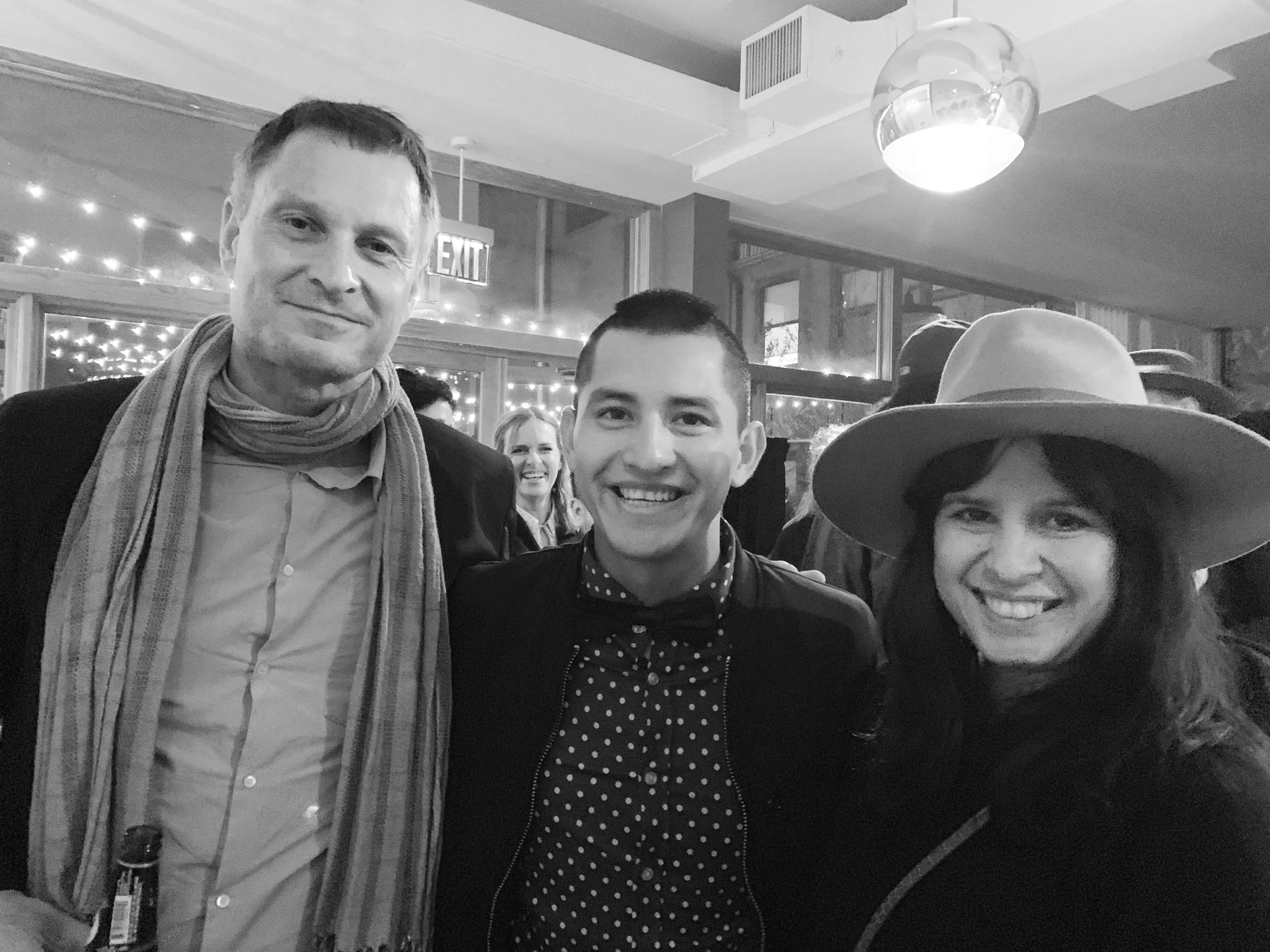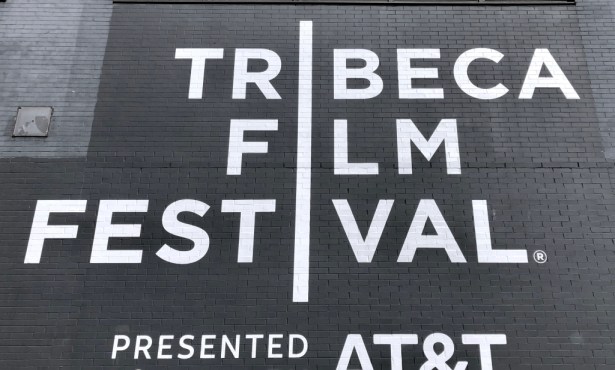Tribeca 2019: A Few Films of Note
Lessons from Food, Friendship, and High School Sports

Despite menacing winds and erratic rainstorms that whipped around the city and all but ensured a moratorium on rooftop revelries, the 2019 Tribeca Film Festival (TFF) once again brought faces and places together for an electrifying 12 days of indie-flick nirvana.
With a star power pedigree and high-profile founders (Robert DeNiro and esteemed producer Jane Rosenthal among them), the festival still manages to feel like a neighborhood affair. Area hotels transform into green rooms and interview spaces; downtown theaters forego commercial programing to spotlight the obscure and avant-garde; and Spring Studios’ Tribeca digs sets the stage for a cinematic meet-cute, where filmmakers, artists, journalists, and audiences all come together for the love of movies.
Known as the global capital of cultural diversity, one of New York City’s signature characteristics is also what distinguishes TFF from the nearly 3,000 film festivals currently in rotation around the world. Where else can you engage in post-film discussions about archaic Mauritanian marriage practices (Flesh Out), a Bolivian cuisine revolution (A Taste of Sky), or an historic reggae reunion tour (Inna De Yard: The Soul of Jamaica) over traditional meals from each of the film’s countries — all in the same day? (Check out Berber Street Food, Bolivian Llama Party, and Miss Lily’s, if you don’t believe me). On a particularly Eurocentric Friday, I grabbed a raspberry-packed “Hindbærsnitter” from Danish café Ole & Steen before an interview with Claus Meyer, the co-founder of revered Scandi restaurant Noma, and recovered from a French (note: racy) reimagining of Snow White and the Seven Dwarfs —Blanche Comme Neige starring Isabelle Hubbert — over a glass of Gamay at the NYC outpost of Parisian wine bar Compagnie des Vins Sur Naturels.
The abundant array of film and food pairings is no doubt an enjoyable perk when making the trek out to Manhattan for this beloved festival, but it’s the intimate encounters with artists and filmmakers — their candid anecdotes and obvious reverence for storytelling — that annually justifies whiling away the New York City hours in a cozy theater taking in some of the more than 150 films on offer. The following are a few of my favorites.
A Taste of Sky
Between 2010 and 2014, Copenhagen darling Noma turned the culinary world on its head when it snagged the prestigious “Best Restaurant in the World” award no less than four times — launching a New Nordic Cuisine movement in the process. Whereas other recipients might have used the spotlight to grow a culinary empire, it seemed to have the opposite affect on Meyer. “It was simply a question about not feeling satisfied,” he said earnestly. “I wanted food to be a vehicle for something much bigger than just myself and a small group of people.”
So, in 2013, he launched Gustu, a culinary school and fine dining restaurant in Bolivia’s capitol, hoping to transform South America’s most impoverished country into a culinary destination using the New Nordic blueprint: seasonal and indigenous ingredients reimagined.
Enter filmmaker Michael Yuchen Lei, who learned about the school on a recent visit to La Paz and soon found himself tagging along on foraging excursions and into Meyer’s world of culinary alchemy. “It’s one of those projects you know deep inside will never come along again,” he remembered. “I knew I couldn’t say no to this.”
A Taste of Sky follows the lives of Kenzo Hirose and Maria Claudia Chura, two young culinary students who navigate the rigorous demands of Gustu’s training program even as they grapple with family obligations and a future of uncertainty. Between luscious, cinematic shots of the Bolivian landscape, we learn about Meyer’s own challenging upbringing, and how the power of mentorship helped him forge a successful path — one that he’s eager to pass along to the next generation. “There’s something symbolic about using gastronomy to fight social issues,” emphasized Meyer. “Food is a universal language that has the power to nurture and inspire, and people can connect to that at any stage in their lives.”
Later that evening, and over plates of hearty Bolivian empanadas known as salteñas, Hirose and I chatted about the road ahead, how his year-long stint at the famed San Sebastian restaurant Mugaritz was a sobering reminder that a career in gastronomy would be fraught with unending challenges, and that he had every intention to make it his life’s work. We spoke at great lengths about “el potencial de la comida,” the potential of food, and how it has the power to remind us where we came from, even as it motivates us to become more than what we thought we could be.
Good Posture
When first time director Dolly Wells set out to make a film about intergenerational female friendships, she was hoping to start at a place where many films habitually end. “We often see women of varying ages pitted against one another in a competitive lock,” said Wells, “and I wanted to shine a light on the complexities as well as the similarities of women at different stages of their lives.”
In Good Posture — her debut film that also stars close pal Emily Mortimer along with talented newcomer Grace Van Patten — film school graduate Lilian (Van Patten) moves into the Brooklyn brownstone of famous writer Julia (Mortimer), where a series of rough and tumble initial encounters quietly dissolves into communicating via exchanges scribbled into a notebook.
“We all have these sort of pre-programmed notions of what it means to be desirable,” stressed Mortimer, “and women aren’t necessarily encouraged to look to one another as allies rather than adversaries.”
As tolerance gives way to mutual understanding, and ultimately, to the realization that their budding friendship is the key to transitioning into the next chapter of their lives, Wells’ subtly beautiful film about self-actualization underscores the reality that “coming-of-age” can be a painful and confusing endeavor at every age.
After the premiere, a usually-raucous Times Square cocktail lounge was transformed into a tranquil English garden, complete with vibrant bouquets of cabbage roses, fruit-laden spritzes, and young girls in tea dresses hopping from table to table carrying nosegays; the perfect setting to discuss the merits of cross-generational friendships. Mortimer and Wells lingered well into the evening, and as I watched the young girls bounce around them offering up flowers, I plucked a peony from a nearby arrangement and tucked it into my own hair, remembering the last thing Wells said to me earlier that afternoon: “Female relationships that transcend generations speak very much to this moment. How beautiful that we can learn from and inspire one another.”
Changing the Game
When we first meet Mack Beggs, the central force in Michael Barnett’s documentary Changing the Game, he’s in the throes of a high school wrestling season, defending his title against a group of athletes hungry to defeat him. An audible wave of boos and hisses floats through the arena as Beggs makes his way onto the mat. Moments later, after he pins down his opponent for the winning point —and she explodes into tears of frustration and defeat — the crowd erupts into a chorus of protests, and Beggs’ brief expression of elation is quickly replaced by an unnervingly blank stare. “Wrestling taught me not to show my emotions,” he explained. “So, for the longest time I shut myself out of feeling what was really going on inside.”
From an early age, what was going on inside for Beggs felt like a complete contradiction to what was happening to his body on the outside, and a few years ago, he decided to do something about it, taking low-level injections of testosterone and making the transition from female to male.
In Changing the Game, Barnett takes us into the lives of four transgender high school athletes with stories similar to Beggs’; balancing adolescence with an arduous training season while continuing to fight for a place on the playing field.
“You wouldn’t believe how cruel people can be,” said Terry Miller, a track star from Connecticut who a few years’ back made the transition from male to female. Although her school allows athletes to compete under their identifying gender, the reception on the field has been far from welcoming. “I take all of their anger and I use it on the track to push me even harder,” she added.
As the ocean of debate roars on, with scientists and sociologistsm — and recently, the Court of Arbitration for Sport — all weighing in on the subject, it’s easy to dim the noise and focus on what’s at stake when you have four young athletes sitting in front of you sharing their experiences. These girls and boys found strength and balance in athletics where it may have lacked in other aspects of their lives, as evidenced by their beaming faces while describing in poetic detail their love of sport and competition.
“I think as long as you work hard, you should be able to accomplish the things that mean the most to you, regardless of gender,” said Sarah Rose Huckman, a competitive skier from New Hampshire. “We just want to be athletes.”

